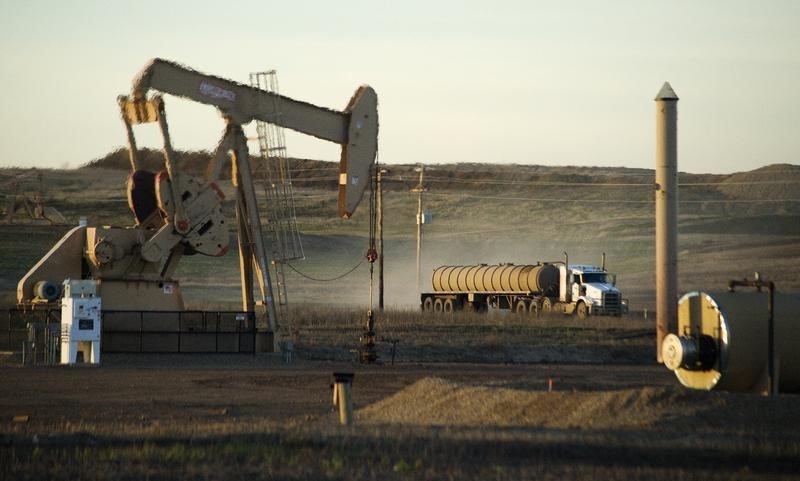© Reuters. Pumps work at the Kern River oil field in California, USA, in a photo from the Reuters archive.
SINGAPORE/LONDON (Reuters) – It leveled off on Monday after several weeks of declines as the weakness in the global economy erased the impact of supply woes caused by the closure of a major US pipeline and threats from Russia to cut production.
Brent crude futures were down 15 cents at 75.95 a barrel by 1:10 pm GMT. U.S. West Texas Intermediate crude oil registered $71.39 a barrel, up 37 cents.
And West Texas Intermediate fell last week to its lowest levels since December 2021 amid fears that the global recession will affect oil demand.
China, the world’s largest importer of crude oil, continued to relax its strict zero Covid policy to fight the coronavirus, yet the streets of the capital Beijing remained quiet and many shops remained closed over the weekend.
“Oil markets are likely to remain volatile in the near term amid uncertainty about the impact of the European embargo on Russian output, news on anti-coronavirus policy in China and central bank decisions in the US and Europe,” UBS analysts Financial services say so in a note.
UBS said it believes Brent crude oil should recover to over $100 a barrel in the coming months amid supply constraints and rising demand as OPEC+ sticks to production cuts.
Canada’s TC Energy said on Sunday it had not yet determined the cause of last week’s Keystone pipeline oil spill in the United States, without providing a timeline for when the pipeline will resume operating (TADAWUL:).
The Keystone Line, which has a production capacity of 622,000 barrels per day, is a major transportation artery for Canadian heavy crude from Alberta to US refineries.
Meanwhile, Russian President Vladimir Putin said on Friday his country could reduce its oil production and would refuse to sell oil to any country that imposes a “stupid” price ceiling on Russian exports.
(Prepared by Ahmed Sobhi and Amira Zahran for the Arab Bulletin – Edited by Mahmoud Abdel-Gawad)

